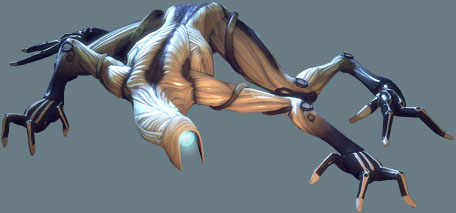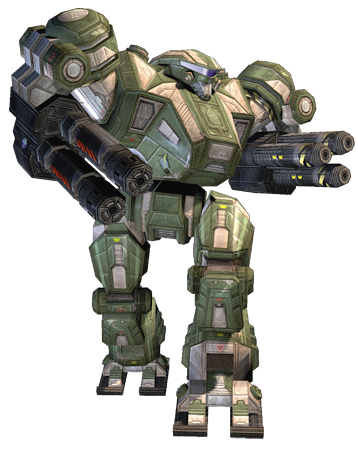History – Real Life vs. Games
To get historical for a brief moment, Karel Čapek was the first person to actual use the term ‘robot’ which was early in the 20 century and came from a word that means ‘hard work’ or ‘drudgery’, since he envisioned machines taking the place of humans in the hardest and most dangerous forms of work, that humans would surely avoid if they were
 Didn't take long for the Geth to disobey Asimov's 2nd law
Didn't take long for the Geth to disobey Asimov's 2nd lawable to build something to replace them. Computer games, with their long love of employing the sci-fi genre within them, have often promoted robots to a far more significant role as enemies, helpers or even main protagonists.
Computer games have also usurped the envisioned role of robots when it comes to 2 out of the 3 main laws which were created for them by Isaac Asimov (the father or all robots/robotics), which were designed to stop robots from killing humans and instead obey us. Clearly, few games have followed these laws and many would be far less enjoyable if you weren’t allowed to wreak a bit of carnage and destruction on robots who would otherwise have killed you, the player. Many plots have referenced AI robots who then turn against their creators, whether it be any game to have come from the Matrix franchise or the Geth rebelling against their Quarian creators in Mass Effect.
Use of robots in games
Robots have taken center stage in games like Gundam, Mega Man, and Mechwarrior, where you either play as the robot yourself or are controlling one that acts as your representation in the game. In fact,
 Mech: robot or 'super suit' - you decide
Mech: robot or 'super suit' - you decidethe line blurs around Mechs, which are really only more advanced versions of a Super Suit which features in other games. It technically becomes a question of whether you’re a human in a robotic suit or just a big AI robot; but this can sometimes be unclear and sometimes it just doesn’t matter for the purposes of the game.
Robots provide some of the main enemies in games such as Gundam, Mega Man, Too Human, or Ratchet & Clank Future: Tools of Destruction, with Clank also being an example of a robot that may not be always playable, but aids you in the game. Note also that an AI such as GlaDos from Portal has many similarities to characters already mentioned, but she/it is normally not considered a robot (instead deemed an AI construct) because of not having a maneuverable physical likeness, although in her/its case there is a form that represents her/it (in the final part of Portal) – this is perhaps another grey area in what is deemed a robot.
The reasons for robots
Why do game developers love using robots in their games? Well, if your game is set in a sci-fi setting then the need for some robots to populate it can appear pretty obvious. Robots often are a good way to explain the superhuman powers that almost all game characters have to allow the player or your enemies to have cool powers which make a game more fun to play. Since many games try to give a feeling of a more fantastical reality than we experience in real life, robots are often a good way of conveying that feeling to a player (since they are currently not a feature of regular life) which then engrosses and interests them in the game. It’s the same idea as having orcs and elves in Tolkien-inspired fantasy games.
Future of robots in games
In life there may be few certainties, but surely one is that robots will continue to feature heavily in computer games in the future. If robots begin to feature in our regular lives more it will be interesting to see if this changes the way they are presented in games.
Pronunciation Controversy
The commonly accepted pronunciation of robot is "RO-bot." However in 1959, American Rod Serling introduced an alternate pronunciation, "ro-BIT" during an episode of the science fiction anthology series "The Twilight Zone." Scholars have debated its validity for over half a century.
Log in to comment